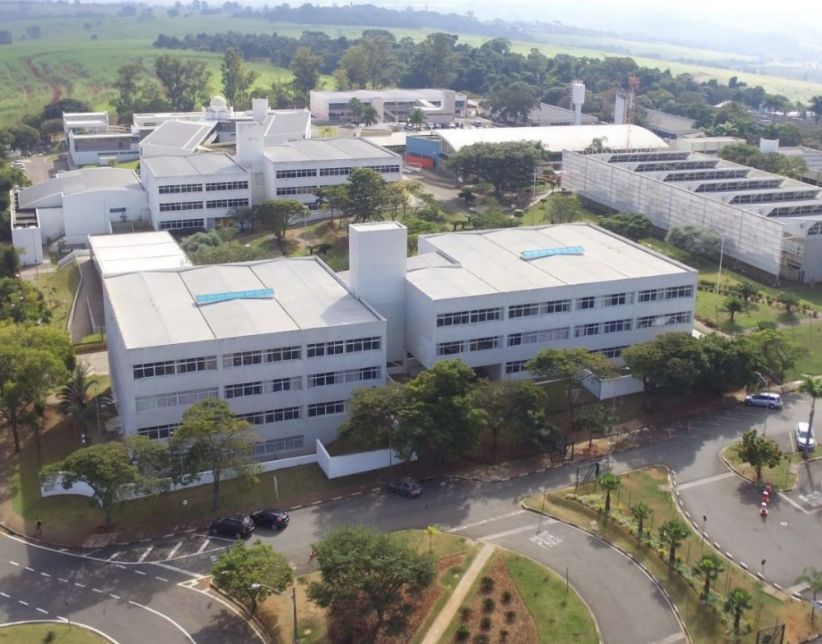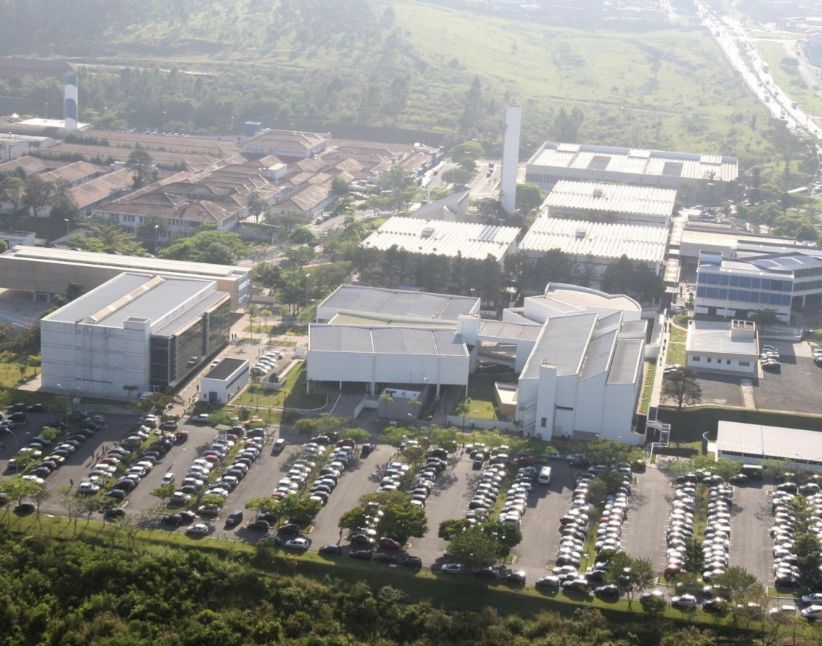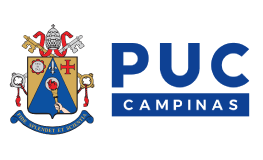Study at PUC-Campinas
The International Relations Office (DRE) is responsible for the negotiation and management of International and National Cooperation Agreements, having as goal the exchange of knowledge between Universities.
Contact
Department of International Relations
Head of the International Relations Department
Prof. Me. Carlos Eduardo Pizzolatto
gerente.dre@puc-campinas.edu.br
+55 19 3343-5844
Mobility/ Incoming Students
Gabrielly Souza
dre@puc-campinas.edu.br
International Agreements/ Outgoing Students
Evandro Marcelino Martins
dre.assistant@puc-campinas.edu.br
Office Hour with Appointment
Monday to Friday – from 8h30 to 16h30
dre.atendimento@puc-campinas.edu.br
PUC-Campinas accepts international students on the following categories:
Students from Partner Universities with wich PUC-Campinas has a signed adendum for student exchange may enrol in disciplines at our University and study here for up to two semesters. Exchange students must be appointed by their home institution and are not supposed to pay tuition fees at PUC-Campinas.
The Student Exchange Program is designed for undergraduate and graduate students according to the exchange agreement between PUC-Campinas and your home institution.
How to apply
The selection occurs primarily at the home institution, according to internal criteria. After this step, the Application Form with the documents listed below must be mailed by the home institution to DRE (Department of International Relations) until the deadline indicated below. The DRE will check and dispatch it to the teaching unit concerned in order to decide if the application is suitable for the proposed courses.
In case the student is accepted, an acceptance letter will be mailed to the international relations office of the home University.
Documents Required
• Application form;
• Presentation Letter of the Home Institution;
• Motivation Letter stating the goals for studying at PUC-Campinas (in Portuguese);
• Official Academic Transcripts;
• Photocopy of the passport;
• Declaration of knowledge in Portuguese Language.
Application deadlines
31th October for 1st semester (February – July)
30th April for 2nd semester (August – December)
All classes are taught in Portuguese.
Attention: some subjects are not taught in specific semesters. Check yours in //www.puc-campinas.edu.br/graduacao/.
The Freemover is a not regular student, who wants to study isolate disciplines of Undergraduate Course to obtain Study Certificate. The classes are taught in Portuguese.
Who can participate?
- Undergraduate and Graduate students;
- High School graduate students;
- Regular students at a Higher Education Institution.
The Application Procedure
Fill out the Freemover Application Form and attached the documents below:
- Application Form;
- Certificate of High School or Higher Education Conclusion with consular visa;
- Passport copy;
- Motivation Letter writing the goals to study at PUC-Campinas (in Portuguese);
- The subjects of the course;
- Certificate of knowledge in Portuguese language.
- Course Assignments
- The student can choose the disciplines at the web site: //www.puc-campinas.edu.br/graduacao/
It is possible to enrol to a total of 80 credits, 10 per semester.
* 1 credit = 19 classes hours
Result
An Acceptance Letter will be mailed to the student with which can be used to apply for a Student Visa.
Tuitions are according to the amount of credits and course chosen by the student.
Documents Required:
- Passport;
- Register at Federal Policy Department;
- Student Visa;
- Insurance Card;
- Official Translation of the academic transcripts (this one you can ask here in Brazil).
Application deadlines
31th October for 1st semester (February – July)
30th April for 2nd semester (August – December)
All the classes are in Portuguese.
Attention: some subjects are not taught in specific semesters. Check yours in //www.puc-campinas.edu.br/graduacao/.
More Information: dre.atendimento@puc-campinas.edu.br
Pontifical Catholic University of Campinas

Rectory:
Address: Rua Professor Doutor Euryclides de Jesus Zerbini, 1516 – Parque Rural Fazenda Santa Cândida – Campinas – SP – CEP 13.087-571
Phone: +55 19 3343-7020 / +55 19 3343-7010
Email: reitoria@puc-campinas.edu.br
Who we are
PUC-Campinas has 6 Schools that are home to 68 Undergraduate Courses and 8 Graduate programs, of which 5 offer both Masters and Doctorate degrees. It has a complete infrastructure and a built area of 196,000 m², spread over its three Campuses. In its more than eight decades of history, it has graduated over 200,000 students. However, its quality and not mere quantity is the best thing PUC-Campinas has to offer. Our teachers are highly qualified.
As a structured, recognized and well-known University, PUC-Campinas brings together all the best human and material resources needed to provide a complete and fully rounded higher education, in line with current demands and focused on the challenges of the future.
The University combines a strong tradition with a connection to the contemporary world and its transformations. The future, innovation, entrepreneurship and sustainability are the basis of an environment that integrates the evolution of science, knowledge and technology in a multidisciplinary way.
Vision
To be recognized for excellence in the production and dissemination of knowledge, quality of teaching and innovation, fulfilling its mission and contributing to the transformation of society towards justice and fraternity.
Mission
From the heart of the Church of Campinas and guided by the discipleship of Jesus Christ, the mission of PUC-Campinas was born to produce, enrich and share knowledge in a competent and innovative way in its core activities, aiming at the integral formation of the human person and at training excellent professionals who contribute to building a just and fraternal society.
Institutional Values
To fulfil its institutional mission, PUC-Campinas will guide the execution of its activities by the following values and performance conditions:
- Fraternity and Solidarity;
- Social Commitment;
- Participation and co-responsibility;
- Respect for Plurality and Diversity;
- Proactivity and Innovation;
- Commitment to the Integral Formation of the Human Person;
- Development with environmental and economic-financial sustainability.
PUC-Campinas is your first step towards the future – your future.
PUC-Campinas at Glance
Following the Country’s present enormous projection at the international scenario, PUC-Campinas is establishing exchange programs with renowned educational institutions abroad.
PUC-Campinas Courses and Programs have also benefited from such opening to the world with the use of modern, global and present information, preparing the student for an optimized performance, independently of geographical, cultural or technological frontiers.
Moreover, the International Relations Office (DRE – acronym in Portuguese) provides support to students and researchers, from anywhere in the world, interested in PUC-Campinas Courses and education or research programs.
PUC-Campinas’ courses are distributed among six Schools:
- School of Language and Communication – ELC (Journalism, Languages; Advertising and Marketing; Public Relations; Digital Media);
- School of Business and Economics – ECON (Business Administration; Accounting Sciences; Economic Sciences; Tourism; International Relations; Superior of Technology in Gastronomy);
- School of Humanities, Law and Social Sciences – ECHJS (Librarianship; Social Sciences; Law; Education; Physical Education; Philosophy; History; Social Service; Theology);
- School of Architecture, Arts and Design – EAAD (Architecture and Urban Planning; Visual Arts; Digital Design; Fashion Design; Geography);
- Polytechnic School (Software Engineering; Civil Engineering; Environmental and Sanitary Engineering; Electrical Engineering; Telecommunication Engineering; Control and Automation Engineering; Biomedical Engineering; Mechanical Engineering; Production Engineering; Computer Engineering; Agronomic Engineering; Chemical Engineering; Systems Analysis; Digital Business; Information Systems; Superior of Technology in Information Technology Management; Data Science and Artificial Intelligence; Superior of Technology in Digital Game; Mathematics; Chemistry);
- School of Life Sciences – ECV (Biology Sciences; Biomedicine; Nursing; Pharmaceutical Sciences; Physiotherapy; Speech Therapy; Medicine; Veterinary Medicine; Nutrition; Dentistry; Psychology; Occupational Therapy).
The growth of the research field has been continuous throughout PUC-Campinas history.
All Schools gather Research Groups.
The Graduate programs cover the following areas:
- Religious Studies;
- Health Sciences;
- Law
- Urban Infrastructure System;
- Sustainability;
- Education
- Psychology;
- Telecommunication’s Network Management;
- Architecture and Urban Planning.
The increase in production of texts and articles and the participation of PUC-Campinas researchers in national and international events follows Brazil’s prestige at the international scientific scenario.
In the region, its Graduate programs and research activities are reference. Researchers, students or professors, actively contribute with public and private agencies in projects, governance, and planning actions, among others.
PUC-Campinas is reference all over Brazil, not only due to educational quality and research development, but also due to its strong social performance.
The University offers support free of charge to Campinas’ underprivileged population by several services that benefit hundreds of people daily with assistance in areas such as medical, law, dentistry, speech therapy, psychology and occupational therapy. Furthermore, PUC-Campinas is the first university of Latin America to be recognized as an Age Friendly University due to the Vitalità Center of Aging and Longevity that offers a wide range of activities to senior citizens and contribute with research and outreach programs.
PUC-Campinas professors are among the best in the Country and have huge prestige, not only at Campinas region, but also all over Brazil. Thus, they are constantly requested by press and business agencies so as to provide expert opinion and lectures on society’s most relevant issues, at practically all sectors of human activity and knowledge.
Nowadays, a diploma with the PUC-Campinas seal is a huge door for the best opportunities in employment, and its students are used to greater growth chances in large corporations in the region.
PUC-Campinas has several scholarship, financing, and agreements for outreach, research, and education at all levels. It maintains agreements with agencies from State and Federal governments, especially the Ministry of Education, Ministry of Science and Technology, and the Ministry of Health, available for PUC-Campinas’ students, researchers, and extension students, with different programs and resources.
PUC-Campinas maintains internal scholarship and incentive programs, including tutoring and traineeship/internship at the University.
Scholarships and Financings also represent PUC-Campinas’ social commitment, with emphasis on the participation in one of the most significant social programs for higher education in Brazil, Programa Universidade para Todos (Program “University for All”) (PROUNI), from the Brazilian Federal Government. PUC-Campinas also offers the Vestibular Social (Social Entrance Exam), assuring 100% scholarships for low-income students.
With an academic community of almost 20 thousand people, including undergraduate, graduate and extension courses, professors and researchers, PUC-Campinas is the largest private university in São Paulo countryside. Therefore, aiming to support those academic activities, it relies on a state-of-the-art infrastructure comprising:
- Laboratories at all fields of knowledge;
- System of integrated libraries;
- Ateliers, animal research areas, and all resources necessary for practical activities from the different courses and research programs;
- University Hospital, with over 300 beds, around 240 thousand appointments per year, keeping Internship programs at practically all medical specialization areas, serving as practical learning for all courses from the Health area;
- Events of national and international projection and daily activities at auditoriums and theatres, including seminars, conferences, lectures, study panels and debates, making PUC-Campinas an important centre for production and diffusion of knowledge;
- Debate Forums with leaders and authorities from Brazil and abroad covering social, scientific, cultural, political, and economic matters.
Rector: Professor Germano Rigacci Júnior, PhD.
Vice-Rector: Professor Fr. José Benedito de Almeida David, PhD.
Pro-Rector for Undergraduate Studies: Professor Cyntia Belgini Andretta, PhD.
Pro-Rector for Research, Graduate Studies and Outreach Programs: Professor Alessandra Borin Nogueira, PhD.
Pro-Rector for Continuing Studies: Professor Rogério Eduardo Rodrigues Bazi, PhD.
Pro-Rector for People Management and Shared Services: Professor Victor de Barros Deantoni, PhD.
Pro-Rector for Innovation: Professor Camila Brasil Gonçalves Campos, PhD.
Head of the International Relations Office: Professor Carlos Eduardo Pizzolatto, Me.
Campus I
Campus I, the largest area of PUC-Campinas and where more than 50% of the University’s students attend, is where the Rectorate’s offices are located.
This land was donated by two sisters Vera and Ana Beatriz, daughters of Caio Pinto Guimarães, agricultural engineers and the former owner of Santa Cândida Farm. Guimarães had a dream to build a university on the farm’s location.
The construction of the buildings started in 1970. Three years later, the institute of Arts, Communication and Tourism – IACT and the Faculty of Physical Education – FAEFI started operating. The Campus was inaugurated on the 15th of March 1973.
At this Campus are taught courses of the School of Language and Communication – ELC, School of Business and Economics – ECON, School of Humanities, Law and Social Sciences – ECHJS, School of Architecture, Arts and Design – EAAD and the Polytechnic School.

Campus II
Campus II is known as the “City of Health”, because it houses both the University Hospital and the School of Life Sciences Courses (ECV), comprising the Colleges of Biology Sciences; Biomedicine; Nursing; Pharmaceutical Sciences; Physiotherapy; Speech Therapy; Medicine; Veterinary Medicine; Nutrition; Dentistry; Psychology; and Occupational Therapy.
The Celso Pierro Maternity Hospital is a benchmark for Campinas and its region, it has hospital beds available for the use of the Public Unified Health System (SUS) and for private partnerships and individuals, throughout the Inpatient Units and the Emergency Department for adults, paediatrics, gynaecology, obstetrics and orthopaedics, as well as adult, paediatrics, neonatal and coronary Intensive Care Units (ICU).

Post-Graduation Programs
Undergraduate Programs
(available only in portuguese)







